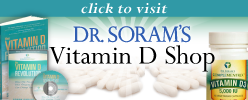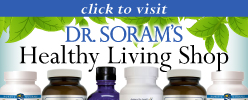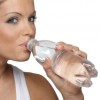 Just when most of us were leaving the hardened plastic bottles we use to carry our sports water and moving towards the softer plastic bottles, which are made with polyethylene terephthalate (PET), a new article showing dangers from PET has been published in the prestigious Environmental Health Perspectives.
Just when most of us were leaving the hardened plastic bottles we use to carry our sports water and moving towards the softer plastic bottles, which are made with polyethylene terephthalate (PET), a new article showing dangers from PET has been published in the prestigious Environmental Health Perspectives.
PET has until now been generally assumed to not be a source of endocrine disruptors. Endocrine disruptors are chemicals in the environment which can have an effect on human endocrine systems. This is especially relevant for human cancers, including breast cancer and prostate cancer.
Now a new article raises serious doubts about the safety of the soft plastic bottles, containing PET, that we are all so used to.
PET is widely used to make many of the products that we all take for granted. The soft plastic we are used to for bottled water as well as containers for other beverages, as well as cosmetics products like shampoo, and condiments like vinegar and salad dressings all contain PET.
There is now new concern that chemicals that have estrogen like effects such as phthalates, may be leaching into the contents of these bottles made from PET. This is in spite of the fact that PET is not a phthalate derivative to start with.
In this review article, the authors look at multiple studies that consistently show that water coming from PET bottles has estrogenic activity.
They also review articles that show that the concentration of phthalates from PET bottles was “more than 12 times higher in PET than in glass bottled water”.
Another study showed that the longer the water was in contact with the PET bottle and the lower the pH of the liquid, the higher the phthalate levels measured in the water.
The author of the article also points out that Antimony is used in the production of PET. In the article they also point out that antimony has “high estrogenicity”. This may be a further issue with this plastic.
The author states that products with a lower pH i.e. more acidic, such as vinegar and salad dressing may warrant particular attention. They point out that one article has shown that using several servings of salad dressing that had been stored in a warm warehouse for a month might result in a dose of phthalates that reaches the reference dose limit of the Environmental Protection Agency.
In summary, it seems that no plastic is entirely safe for us! For a long time now I have recommended my patients drink their sports drinks either out of stainless steel or glass containers. I encourage all my readers to do the same.
Many questions were raised by this article. They are especially important because these plastic bottles are ubiquitous.
Let me know what you think about all this new information that is emerging.
About Dr. Soram Khalsa
As an MD, Dr Soram specializes in Integrative Medicine combining diet, nutrition, acupuncture, herbs and nutrition. Visit Dr Soram’s Healthy Living Store where you’ll find high-quality nutritional supplements:





